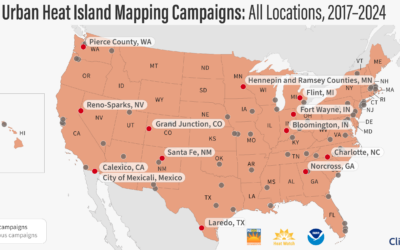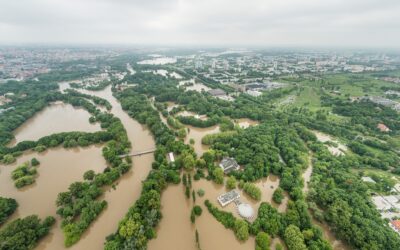LAS VEGAS, Nev. (Apr. 19, 2017) — With support from WaterStart, Australia-based water technology company STAR Water Solutions announced plans to pilot a new project with researchers from the Desert Research Institute (DRI).
The project will utilize the company’s state of the art water treatment and reuse technologies that deliver proven, cost effective and efficient water filtration for urban stormwater, industrial mining and agricultural runoff and industrial waste water systems.
The partnership is the result of a connection made by the Governor’s Office of Economic Development during a trade mission to the Queensland Government in 2016.
With assistance from DRI scientists, STAR Water Solutions staff will work to characterize locally available materials in Nevada, identify filtration material performance efficacy and establish manufacturing distribution channels within the state for the development of recycled and sustainably procured bio-filters.
“We are really looking forward to showcasing our unique technologies in Nevada and furthering water innovation for the state,” said Chris Rochfort, CEO of STAR Water Solutions. “This is an opportunity for STAR Water to target large scale projects, with the help of DRI, that will focus on improving water quality in the state.”
The collaboration hopes to create new analytical practices, manufacturing opportunities, new beneficial uses for recycled materials, and advance water filtration system performance outcomes with significant environmental, social and economic results.
“Developing and testing innovative water quality management practices is a priority for researchers at DRI and the state of Nevada, and we welcome this opportunity to develop a new partnership with STAR Water Solutions,” said Alan Heyvaert, Ph.D, a limnologist and leading water quality expert at DRI. “Their advanced water filtration technology and global experience linked with our research capabilities demonstrates how science-driven technological innovation is growing new industries in Nevada.”
With operations across Australia, Singapore, Canada and the U.S., STAR Water Solutions has built a global network in which it provides systems and solutions that address major infrastructure challenges related to water and the environment.
“We are thrilled to welcome STAR Water to Nevada as part of this strategic partnership with DRI,” said Nate Allen, Executive Director of WaterStart. “Their innovative technology will contribute to local business growth and addressing water quality challenges in both Nevada and the U.S.”
International leaders in advanced bio-filtration and bio retention systems resulting from extensive, long term research & development, STAR Water Solutions provide “state of the art” treatment and reuse technologies that deliver proven, cost effective and efficient performance for urban stormwater, industrial, mining and agricultural runoff and industrial waste water systems. STAR Water holds an exclusive worldwide license for Reactive Filter Media™ technology. For more information, visit www.starwater.com.au.
Desert Research Institute (DRI), the nonprofit research arm of the Nevada System of Higher Education, is a world leader in environmental sciences through the application of knowledge and technologies to improve people’s lives throughout Nevada and the world. For more information about DRI please visit www.dri.edu.
WaterStart operates in a region of proven first adopters, sitting at the nexus of technology, research and economic development. WaterStart provides channels for innovation for various stakeholders and water resource managers; including: technology companies, management agencies and policy makers and provides services ranging from commercialization funding to business development. As it continues to bring together strategic resources and expertise, its core mission will create quality job growth and help diversify the economy of the region. For more information, visit www.waterstart.com.


